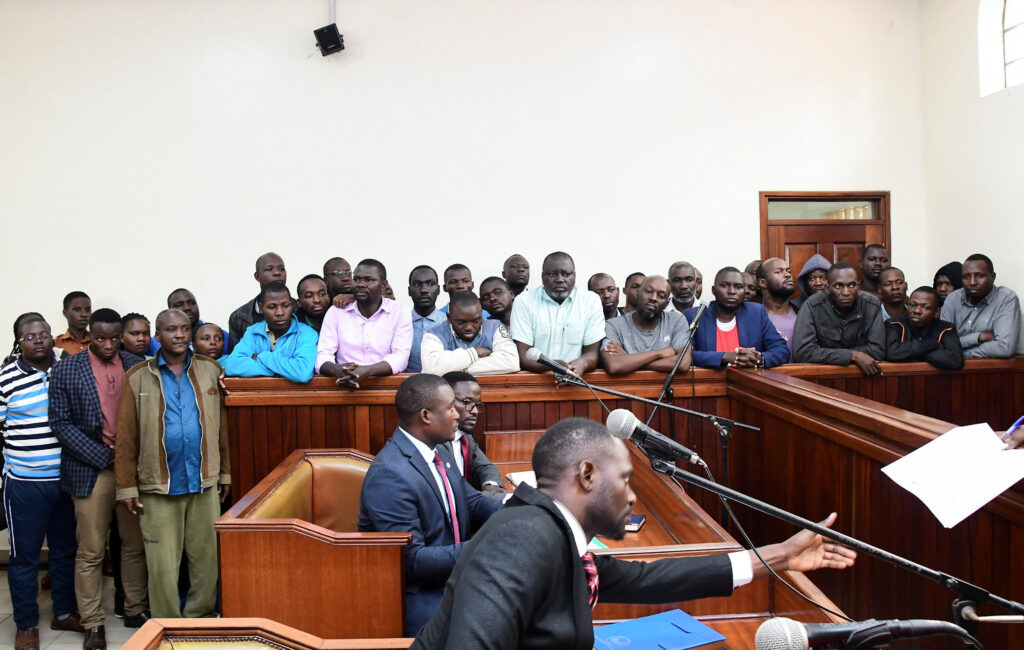KAMPALA, Uganda — Thirty-six members of Uganda’s opposition Forum for Democratic Change (FDC) party are scheduled to appear in court Monday on terrorism-related charges, a case that human rights groups claim is politically motivated.
The accused were arrested last month after being deported from Kenya, where they had allegedly traveled for a training course. Uganda Police Force stated the group was “engaged in covert activities that are suspected to be subversive,” which drew the attention of Kenyan security forces.

Erias Lukwago, a lawyer representing the accused, denounced the charges as “an absurd abuse of a judicial process to witch-hunt and torment opposition supporters.” Lukwago asserts that the FDC members had traveled to Kisumu, Kenya, to attend a training seminar.
The court charge sheet accuses the 36 individuals of traveling to Kenya “to provide or receive terrorist training.” They are currently held in a prison approximately 50 kilometers (31 miles) northwest of Kampala.
Wanjeri Nderu, president of the International Society For Human Rights (ISHR), criticized the arrests, noting that Kenya does not have an extradition treaty with Uganda. “There was no due process followed or court process,” Nderu told DW. “This is what impunity looks like.”
The case has reignited concerns about political repression in Uganda under President Yoweri Museveni, who has ruled the country for 38 years. Critics, including opposition leaders and human rights campaigners, have long accused Museveni’s government of using fabricated charges to suppress dissent.
Adolf Mbaine, a political analyst at Makerere University, told DW, “The relationship between President Museveni and the political opposition has been fractured over many years. The president doesn’t like strong opposition and threats to his hold onto power.”

The arrests have also raised questions about regional politics and cooperation between East African nations. Mbaine suggested that the close relationship between Kenyan President William Ruto and Museveni may have played a role in the opposition group’s deportation from Kenya.
Uganda’s history of political repression came to international attention during the 2021 presidential election when demonstrations against the arrest of opposition leader Bobi Wine were violently suppressed, resulting in at least 54 deaths.
Human rights defenders warn that Kenya may not be a safe haven for political dissidents from neighboring countries. Nderu advised against human rights defenders from neighboring countries seeking refuge in Kenya, citing the “huge possibility” of being accessed by those they were fleeing.
As the court case proceeds, it is likely to draw further scrutiny to Uganda’s human rights record and its treatment of political opposition. International observers and human rights organizations are expected to closely monitor the proceedings.
The Ugandan government has consistently denied allegations of political repression, maintaining that it operates within the law to maintain national security and public order.



